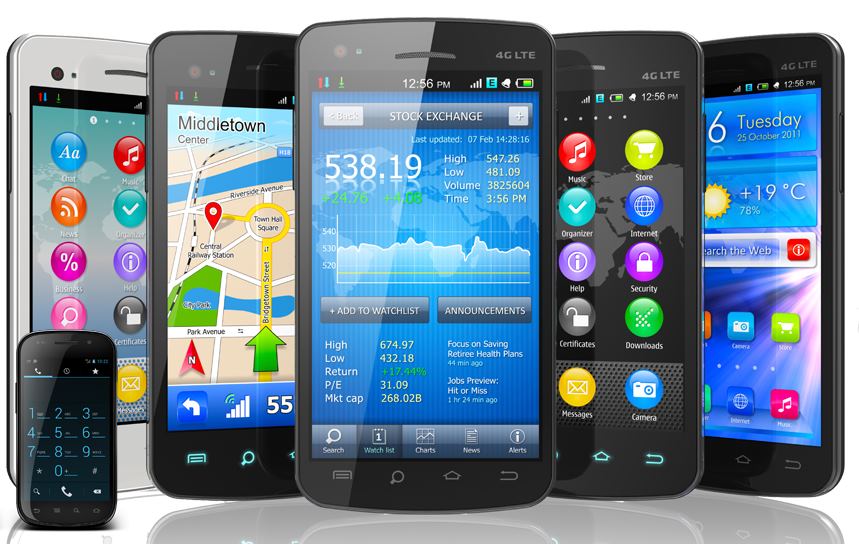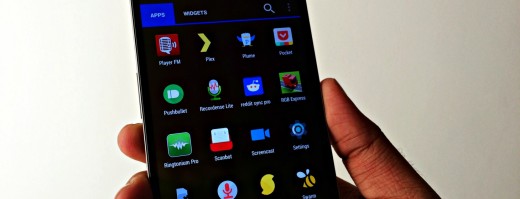A multifunctional application - do all the functions your program needs?

Many features for mobile applications have become the de facto standard in development. Developers sometimes do not even think about why a program has this or that opportunity. Since this is a standard, then you need to add. But is it worth adding everything in a row, just because everyone does it? Let's speculate.
In the sequel - a list of the most frequently added functions that are considered standard. If you are developing applications, you should look at this list and think again if your program needs these features.
Share

This tool can be an ideal feature for applications where the user works with content. Share, or "Share" in some cases even helps to increase the audience of the application. But "what is good for the Russian is death to the German," and if for some programs this is a great opportunity, for others it is not at all. Unfortunately, not all developers are aware of this, by default adding this social tool to their program.
An example is an alarm program. Here, interaction between users is not required at all (with the exception of cases when users awaken each other - there is such a thing, yes). So what can an alarm user share? Awakening Time?
If you still really want to use such a function, then you should think about how to do it in an original way. Well, for example, provide the user with the opportunity to share information with friends about how many times in the morning they rearrange the time of awakening. But it’s better not to add the fifth wheel of the cart.
Use of game elements

As with Share, gamification can be attractive and necessary for the user. In some social applications, gamification can work very well, increasing the frequency of use of the application by the user and the time he spends in the program. This is especially true for all kinds of fitness applications, where users compete with each other, demonstrating their own successes (in running, cycling, swimming, etc.).
It is clear that there are examples when it is not worth doing anything like that. One such example is Google News Badges. In 2011, Google introduced the ability to accumulate badges for users of its services, and the more users read materials on a topic, the more badges they receive. But does the program really need such functionality? Who is using it? Do we pay attention to how many articles we read on a particular topic?
The answer is no. And the added feature turned out to be useless.
Another example is the opportunity to become the "mayor" of an institution, with the maximum number of visits to this institution among all users. It's about the Swarm app. This feature initially received negative user reviews, although users were initially not too happy about dividing the main Foresquare app into two.
The gaming, competitive component in many cases is simply annoying for users.
Geolocation

This feature is central to many applications. Tinder, Snapchat, and Foursquare - you can’t do without geolocation here. Moreover, if there had been no GPS technology, there would have been no such applications. There are also programs for which geolocation is not needed at all, or is needed, but it is used in the wrong way, roughly speaking.
There is one interesting point. If you are going to show ads in your application, then remember that geolocation and the user profile (more on this below) are two factors that allow the advertiser to improve targeting. Accordingly, such advertising will cost more, and the developer will receive more money than in the absence of geolocation and profiles. But, of course, this does not mean at all that geolocation needs to be built into the next version of Tetris. But here's the profile - it’s entirely possible, and social functions in this case will also be helpful. And now about the profile.
User profile

The user profile has become an integral part of many services and applications over 10 years ago, with the advent of social media platforms. Users really liked the idea of owning a page that belongs only to them, and no one else. They can edit it, share content and information with friends on the network. Profiles have become a hit, the most popular part of many applications for mobile devices.
In particular, this applies to social and gaming programs. The main goal in this case is the personalization of everything and everything. Interestingly, in some programs creating a profile is an option, while in others the user must create a profile in order to start using the program.
In Skype, Facebook, Twitter without a profile you can’t start work. Yes, and it is in human nature to stand out. In this case, using the picture and the original quote or status.
However, for some applications, profiles are not needed (here it is still worth recalling the advice from the previous paragraph). Some users simply do not want to fill out information about themselves. Such people want to download the program, and immediately start using it. But no - the application requires you to place an avatar, write something about yourself, take a picture of the key to the front door, place a photo of a credit card ... No, no one really requires keys and credit cards, but for some users the requirement to indicate your name is already akin to this .
Advertising and monetization

Most developers hope that the application will be profitable, this is logical (and we help with this, by the way). But it is far from always necessary to immediately ask the user to pay. A person needs to make it clear the benefits of the program, let him work with it, and then ask him to contribute some amount or show an advertisement.
It is also worth remembering that in different cases it is necessary to monetize the application in different ways. So, in the case of in-app purchases is one thing. In the case of free and paid versions of the same program - another.
No one doubts that your application can and should be monetized. But do it wisely, so that the user himself brings the money. We at Appodeal can help you with this.
